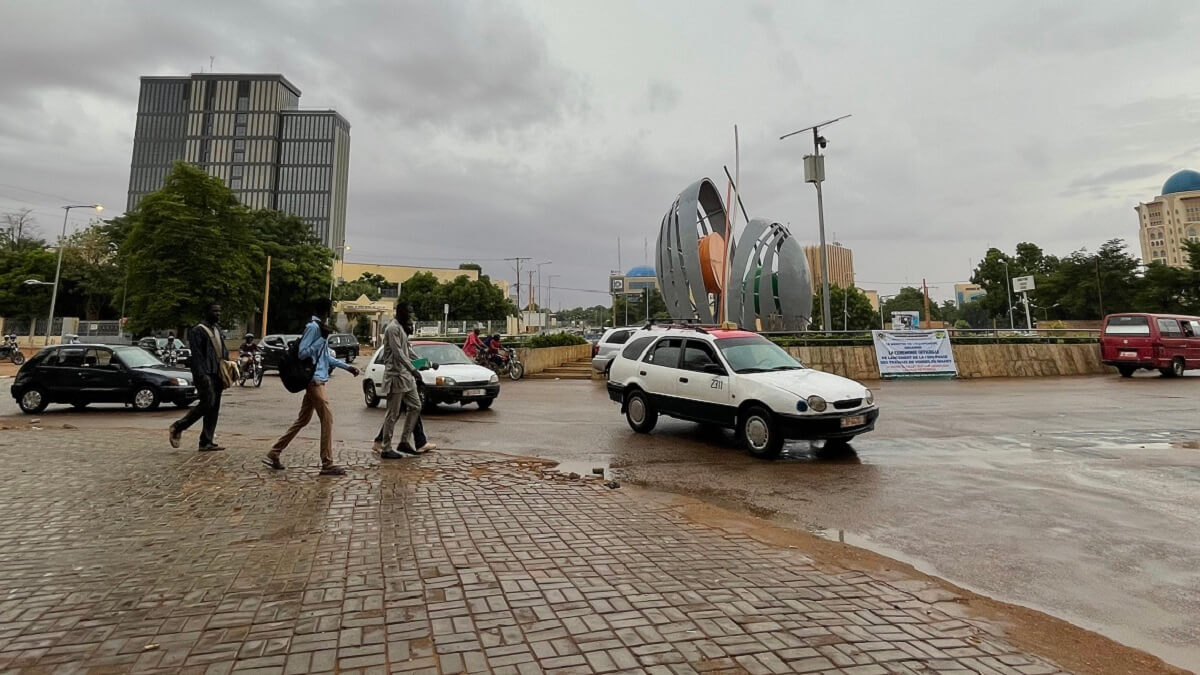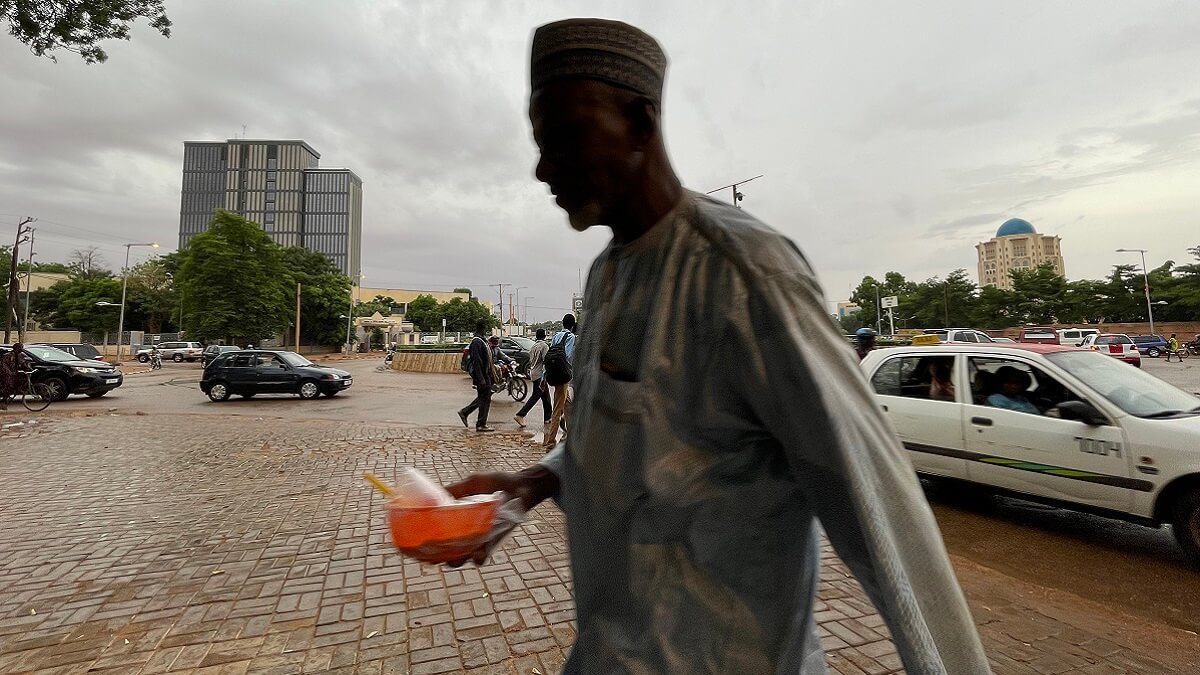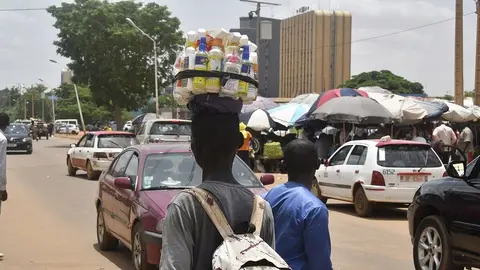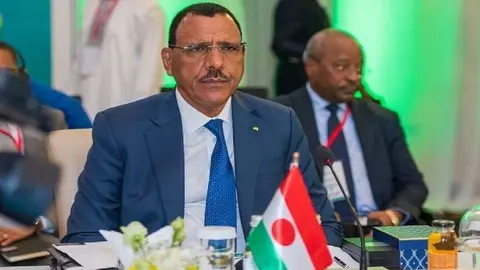Military coup leaders announce the ousting of Niger's president

Niger's Presidential Guard blockaded the Presidential Palace and detained President Mohammed Bazoum to later announce his ouster, the establishment of a military junta to take over power and the closure of land and air borders.
Specifically, the military group that has seized power has called itself the National Council for the Safeguarding of the Homeland and has taken control of a country where democracy had been established after years of coups d'état and other coup attempts since gaining independence from France in 1960.
Most recently, in March 2021, the Nigerian government announced the arrest of several people for a coup attempt days before the inauguration of Mohammed Bazoum, who was confronted by supporters of Mahaman Ousmane, who was previously president and denounced the election results and proclaimed himself the winner of the election. Bazoum was the Minister of the Interior before he became president and was very close to the outgoing president at the time, Mahamadou Issoufou. Opposition sectors saw Bazoum as a continuation of the existing political system, continuing the policies of Issoufou, who resigned voluntarily after two terms in office, and for this reason Bazoum was strongly contested to the point of an attempted uprising. All this in a situation of national political instability and major poverty problems in a country like Nigeria, which ranked 189th out of 191 countries in the United Nations Human Development Index 2022.

In addition, a second attempt to overthrow Bazoum took place in March 2022 "while the president was in Turkey", according to a Nigerian official who confirmed the arrest of one person at the time.
Mohammed Bazoum, during his current imprisonment, called for the protection of the country's democracy. "The hard-won gains will be safeguarded. All Nigerians who are attached to democracy and freedom will watch over them," the Nigerian president said after the coup d'état.
Les acquis obtenus de haute lutte seront sauvegardés.
— Mohamed Bazoum (@mohamedbazoum) July 27, 2023
Tous les nigériens épris de démocratie et de liberté y veilleront.#MB
After the seizure of power by force by the National Council, dialogue between the opposing parties was initiated, but the talks failed and no agreement was reached. This finally led to the military junta's announcement of Mohamed Bazoum's dismissal.
On the other hand, mediation by supranational bodies such as the Economic Community of West African States (ECOWAS) failed to make the military coup leaders desist from their position, although ECOWAS held them responsible for what might happen to the president of Niger.

The importance of Niger
There is concern about maintaining stability in a country like Niger, which is part of the Sahel region. This area suffers from the onslaught of extremist terrorism and is key to maintaining regional, African and even European security due to the proximity between Europe and the African continent and the concern about extremist groups operating in Sahelian territory. Within this scenario, Mohammed Bazoum has been a pro-Western president who has cooperated to bring the country closer to the West and has worked to oppose extremist groups in the region.
Niger is uniquely situated in the Sahel region, a vast desert area plagued by criminal and extremist groups, and is bordered by Benin to the south, Burkina Faso and Mali to the west, Algeria and Libya to the north, and Chad to the east. It is a vast nation, the largest in West Africa, and also has a large expanse of desert. Niger has a poverty rate of 48.9% and a per capita income of $533 in 2022, according to the World Bank, making Niger one of the poorest countries in the world.
Niger continues to suffer from political instability, food insecurity, poverty and obvious drought problems. On the other hand, however, it has significant uranium and oil production, which is an important base for the African country.
Agriculture is another important source of Niger's export income. In its hot, arid climate, agriculture is concentrated on small family farms producing cereals and vegetables in rain-fed areas and irrigated crops such as onions, sesame and peas.
It is worth noting that France, a former colonial power in Niger, has important uranium mining interests in Niger, making the situation in Niger important for France, which also maintains a strong military presence in the country. France was quick to condemn "any attempt to seize power by force" and to call for the "restoration of democratic institutions".










